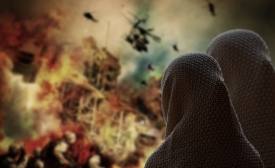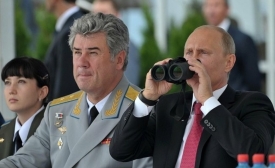hard power
Doing nothing when war crimes are committed is immoral. It is also bad policy. But a response to war crimes such as those perpetrated by the Syrian regime of Bashar al-Assad must be more than a display of righteousness; it must become an element of a broader foreign policy initiative. This is the challenge facing the Trump administration after the missile strike launched by the United States

Could the missile strikes on Syria enhance U.S. soft power? Philip Seib considers the possibility at the CPD Blog.
One would not expect the secretary of defense routinely to inspect the sentries and walk point on patrols, but, in effect, that is what the secretary of state has to do. He is the chief executive of a department numbering in the tens of thousands, and a budget in the tens of billions; but he is also the country’s chief diplomat, charged with conducting negotiations and doing much of the detailed work of American foreign policy.
Contrary to public perceptions, foreign aid represents a tiny fraction of the $4 trillion federal budget. According to the Congressional Research Service, in the past three decades, foreign aid has never accounted for more than 1.4 cents of every dollar spent by Washington. [...] "When you deploy hard power, you actually need more diplomats," says Charles Ries, a vice president at the RAND Corporation who served in diplomatic posts in Iraq and Greece.

Has Putin's use of hard power created a soft power appeal?
“Speak softly and carry a big stick” Theodore Roosevelt famously said in 1901, when the United States was emerging as a great power. It was the right sentiment, perhaps, in an age of imperial rivalry but today many Americans doubt the utility of their global military presence, thinking it outdated, unnecessary or even dangerous.
It has been suggested that Donald Trump will be a president who will focus on "hard power" to underpin his foreign policy goals rather than focusing on "soft power," which was Obama's preference. The United States cannot just use this or that; it needs to use both. Hard or soft, it's about power, period. [...] While taking a strong stance on security and defense, Trump needs deploy American soft power institutionally in his foreign policy.







